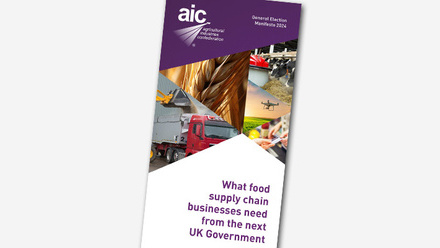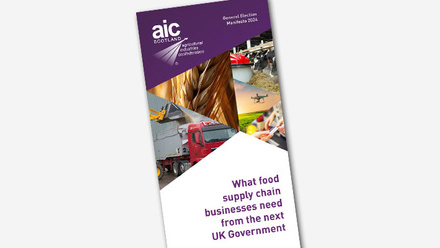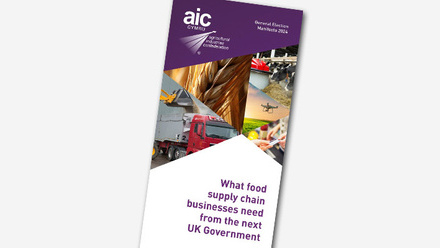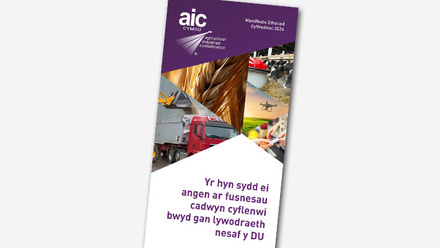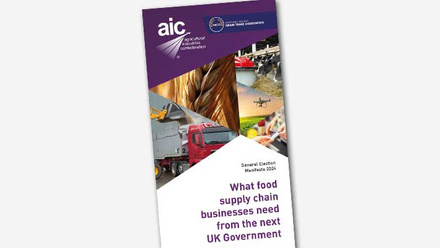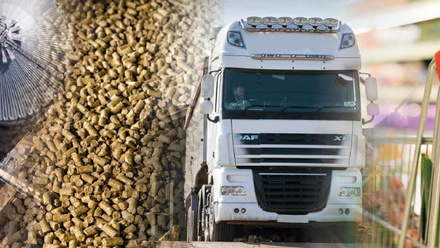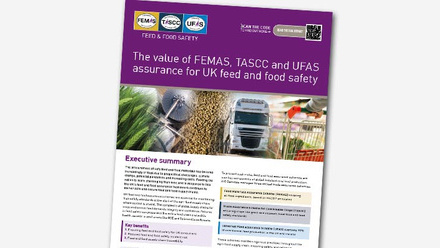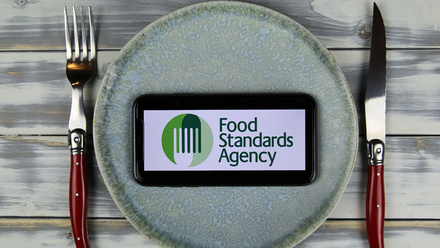Blog: It’s time to get serious about the UK’s food security and land use – here’s how
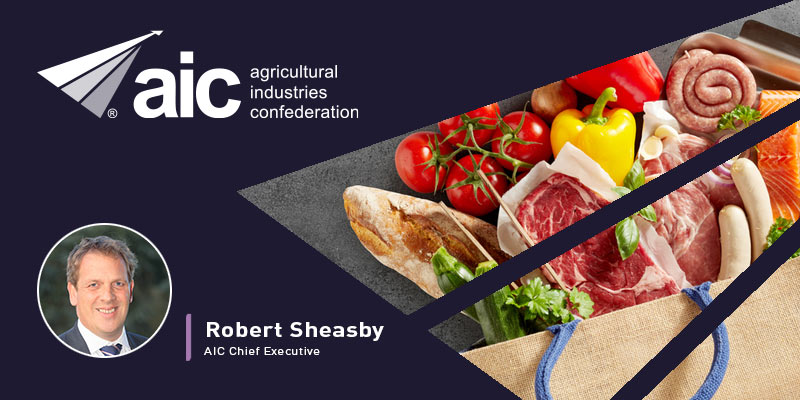
In March the Agricultural Industries Confederation (AIC) launched its 2024 General Election manifesto, outlining what food supply chain businesses need from the next UK Government.
The first of AIC's three key asks is for a comprehensive, cohesive UK Government approach to our food security and land use, as AIC’s Chief Executive Robert Sheasby explains.
Mr Sheasby will be at 10 Downing Street for the second annual Farm To Fork Summit with the Prime Minister on 14 May 2024.
Land is a finite resource and there are competing pressures placed upon it – food and energy production, environmental goods, and housing to name just a few.
What we do with our land resource, and the food we produce with it matters for our economy, our productivity, our environment, and our people.
Unlike some other countries, the UK lacks a joined-up, cross-government strategy on land use or food security – something AIC has long advocated.
To make long-term, strategic planning decisions, businesses need to be clear on the next Government’s vision for our land and the role of food producers within it.
AIC is calling for an independent, statutory Food Security Committee to be established, considering the food production and land use balances needed for the UK across all governments and departments.
This delivers on the "Powering Productivity for Sustainable UK Food Security" report recommendation of an independent UK Food Security Committee – the core finding of the independently authored report that AIC commissioned Anglia Ruskin University to produce last year, assessing the UK agri-food sector’s productivity.
Food security in focus
Producing food and animal feed is set against the backdrop of global volatility where we see the extreme toll that conflict, adverse weather patterns, climate change, and regulatory interventions have on the security and stability of our nation’s food supply.
Businesses need long-term certainty of the fiscal and policy environment to create the confidence to invest in UK innovation, research and development as well as in processing and production capacity.
Short-term, reactive, unpredictable decision-making is not only bad for business, but it also challenges our food security. The lack of confidence to plan, build and invest affects our food security at a time when we need it more than ever, a point proven beyond doubt by the events of the past few years alone with prices rising for British families, shoppers, and diners.
If the UK can commit to a 25-Year Environment Plan then surely bolstering our nation’s access to food, with an ability to offset our balance of trade by boosting domestic production, is worthy of developing a Land Use Strategy in line with a Food Security Committee.
Joined up thinking
The "Powering Productivity" report shows that there is no silver bullet to increasing UK food production to provide for a more secure future.
Productivity is multifaceted and complex, with many variables that have a different impact on the various parts of the UK food and farming sectors, and many are interdependent.
For example, alleviating staffing issues cannot be achieved if there is insufficient training or educational pathways. Improving crop diversity cannot happen if there are no markets for them, or if the chemistry or the seed is unavailable.
Improving livestock health and reducing emissions cannot be realised without a planning system which accommodates new infrastructure and buildings. We cannot export goods if there are barriers to trading with our most important markets.
Interdependencies must be recognised if we are to have a world-leading food strategy.
Government priority
Much like the oversight that the statutory Climate Change Committee provides for the nation’s environmental efforts, we need a cross-government, cross-industry, cross-UK view to plan for the future of our national food supply.
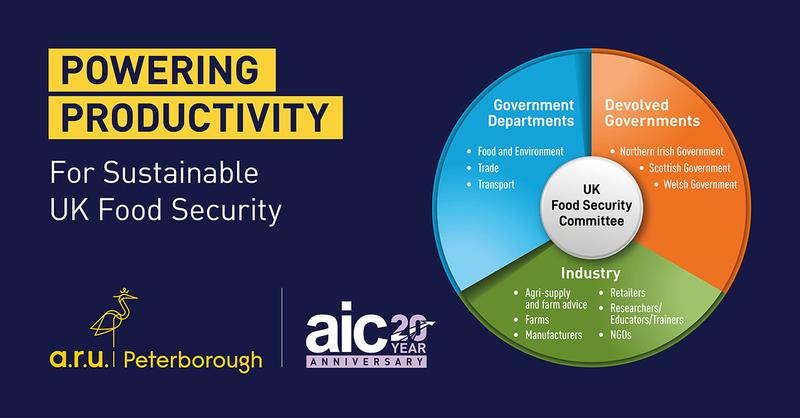
It is obvious that, as the foundation of the food supply chain, agricultural production and the balance of trade is a cross-policy issue. For too long the Department for Environment, Food and Rural Affairs (Defra) has been expected to carry a role that should be a priority for all of Government.
The onus lies not solely with Defra but extends across many governmental departments. From the Treasury to Trade, Education to Energy Security and Net Zero, a cross-departmental effort with input from all devolved nations of the UK is essential in building a robust, pragmatic strategy that delivers for the whole country.
We must get away from food security being seen as a short-term political issue. Instead, we need independent advocates from all parts of the food supply chain to form a statutory UK Food Security Committee to plan for the long term.
This appears to be in the zeitgeist, and I am delighted to see so many businesses, agri-food bodies, politicians and academics already voicing their support.
It goes to show there is a genuine willingness to work together in the long term. The challenge is therefore laid down to the political parties seeking to form the next UK Government to join the agri-food industry’s ambition to sustainably bolster our national food security.
More on AIC's manifesto
For more on the AIC 2024 General Election Manifesto - "What food supply chain businesses need from the next UK Government" - visit the election webpage, or click below to view and download a copy.





